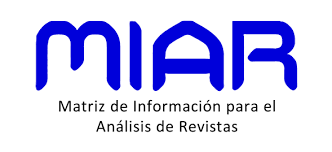SERAHSÎ’NİN el-MEBSÛT ADLI ESERİ ÇERÇEVESİNDE MECÂZ DELİLLERİ
Abstract
Fıkıh Usulcüleri eserlerinde, sadece İslam hukukunun kaynaklarını incelemekle yetinmeyip dil konularını da ayrıntılı biçimde ele alırlar. Hakikat-mecaz konusu da bu tartışmalar arasında önemli bir yere sahiptir. Serahsî, Usûlü‟s-Serahsî adıyla bilinen eserinde bu konuyu ele aldıktan sonra “Sözün hakikat anlamının terkedildiği durumlar” adında bir başlık açarak şu beş durumu sıralamıştır: “adetin delaleti”, “lafzın delaleti”, “sözdizimi delaleti”, “konuşanın niteliğinden çıkan delalet” ve “sözün konusundan çıkan” delalet”. İşbu makalede, “mecaz delilleri” adını da verebi-leceğimiz bu beş durumun Serahsî‟nin furu eseri olan el-Mebsût‟taki yansımaları üzerinde dur-duk ve bunlara iki durum daha eklenmesi yönünde bir teklifte bulunduk. Teklif ettiğimiz bu iki durum şunlardır: “Hakîkî anlamın imkansızlığı” ve “gerçek irade.”
References
- Ali Haydar Efendi, Düreru’l-hukkâm Şerhu Mecelleti’l-ahkâm, İstanbul: Matbaa-i Tevsî’i Tıbâat, 1330 (h.). [Ali Haydar, Dürer]
- Demiray, Mustafa, Serahsî’de Kazâî Hüküm-Diyânî Hüküm Ayrımı (Yayımlanmamış Yüksek Lisans Tezi), Marmara Üniversitesi Sosyal Bilimler Enstitüsü, İstanbul 2001.
- Feyyûmî, Ahmed b. Muhammed b. Ali, el-Misbâhu’l-münîr, Beyrut: Mektebetu Lüb- nan, 1987. [Feyyûmî, el-Misbâhu’l-münîr]
- Güman, Osman, Nahiv-Fıkıh Usulü İlişkisi, (Yayımlanmamış Doktora Tezi), Marmara Üniversitesi Sosyal Bilimler Enstitüsü, İstanbul 2006. *Güman, Nahiv-Fıkıh Usulü İlişkisi]
- İbn Âbidîn, Muhammed Emin Efendi, ‚Raf’u’l-inkitâd ve def’u’l-i’tirad ‘ala kavlihim ‚el- eymân mebniyye ale’l-elfâz, lâ ‘ale’l-ağrâd‛, (Mecmûatü Resâili İbn Âbidîn içinde), yy, ts. *İbn Âbidîn, Raf’u’l-intikâd]
- ―――, Reddü’l-Muhtâr Şerhu’d-Dürri’l-Muhtâr, Beyrut: Dâru’l-fikr, 1992.
- İbn Cinnî, Ebu’l-feth Osman, thk. Muhammed Ali en-Neccâr, el-Hasâis, Beyrut: Âlemü’l-kütüb. *İbn Cinnî, Hasâis] el-İsnevî, Cemâluddîn Abdurrahîm b. el-Hasen, el-Kevkebu’d-durrî fî tahrîci’l-furû’i’l- fıkhiyye ale’l-mesâili’n-nahviyye, Beyrut 2004.
- İbn Nüceym, Zeynü’l-âbidîn b. İbrahim, thk. Abdülkerim el-Fadîlî, el-Eşbâh ve’n- nezâir ‘alâ mezhebi Ebî Hanifete’n-Nu’mân, Saydâ-Beyrut: el-Mektebetü’l- Asriyye, 2003. *İbn Nüceym, el-Eşbâh ve’n-nezâir]
- el-Hâşimî, Seyyid Ahmed, Cevâhiru’l-belâga, İstanbul: Kahraman Yayınları, 1984. [Hâşimî, Cevâhiru’l-belâga]
- Komisyon, (Pakalın, Şükrü Haluk; Toparlı, Recep v.dğr.), TDK Türkçe Sözlük, Türk Dil Kurumu, Ankara 2006.
- Komisyon, (İbrahim Mustafa, Ahmed Hasan Zeyyat v.dğr.), el-Mu’cemu’l-vasît, İstan- bul: Çağrı Yayınları, 1992.
- el-Meydânî, Abdurrahman Hasan Habenneke, el-Belagatu’l-‘Arabiyye Ususuhâ ve ulûmuhâ ve funûnuhâ, Dâru’l-kalem, Beyrut/Dımeşk: ed-Dâru’-Şâmiyye, 1996. [Meydânî, el-Belâga]
- Reisoğlu, Safa, Borçlar Hukuku Genel Hükümler, İstanbul: Beta Basım Yayın Dağıtım, 1990. *Reisoğlu, Borçlar Hukuku]
- Öztürk, Mustafa, Kur’ân-ı Kerim Meali (Anlam ve Yorum Merkezli Çeviri), Ankara: Otto Yayınları, 2008.
- es-Sekkâkî, Ebû Yakub Yusuf b. Ebî Bekr, Miftâhu’l-ulûm, Beyrut: Dâru’l-kütübi’l- ilmiyye, 1987. [Sekkâkî, Miftâhu’l-ulûm]
- es-Serahsî, Ahmed b. Ebî Sehl, Usûlu’s-Serahsî, thk. Ebu’l-vefâ el-Efğâni, Beyrut: Dâru’l-kütübi’l-ilmiyye, 1993. [Serahsî, Usûl]
- ―――, el-Mebsût, Beyrut: Dâru’l-ma’rife, 1993. *Serahsî, el-Mebsût]
Evidences of Majaz in accordince with al-Mabsut by al-Sarakhsi
Abstract
The literature of the methodology of Islamic Law (Usul al-Fiqh) does not only study the subject of
“sources of law”; but also studies Linguistic discussions as well. The subject of “haqiqah-majaz”
also takes place in these discussions. al-Sarakhsi, in his book, known as “Usul al-Sarakhsi” which
discussed this subject, has counted five situations in a seperate chapter entitled “situations where
haqiqah is left”. These situations are listed as “significance of custom”, “significance of word”,
“significance of the syntax”, “significance of speaker‟s situation” and finally “the subject of the
speech”. In this article we discuss the reflections of these situations titled “evidences of the
figurative meaning” written in a book by al-Sarakhsi that is named as al-Mabsut. After discussing
these situations, we add to them a further two situations. These are “the impossibility of the real
meaning” and “declaration of intent”.
Keywords
al-Sarakhsi Meaning Haqīqah Evidences of Majaz Custom Intent
References
- Ali Haydar Efendi, Düreru’l-hukkâm Şerhu Mecelleti’l-ahkâm, İstanbul: Matbaa-i Tevsî’i Tıbâat, 1330 (h.). [Ali Haydar, Dürer]
- Demiray, Mustafa, Serahsî’de Kazâî Hüküm-Diyânî Hüküm Ayrımı (Yayımlanmamış Yüksek Lisans Tezi), Marmara Üniversitesi Sosyal Bilimler Enstitüsü, İstanbul 2001.
- Feyyûmî, Ahmed b. Muhammed b. Ali, el-Misbâhu’l-münîr, Beyrut: Mektebetu Lüb- nan, 1987. [Feyyûmî, el-Misbâhu’l-münîr]
- Güman, Osman, Nahiv-Fıkıh Usulü İlişkisi, (Yayımlanmamış Doktora Tezi), Marmara Üniversitesi Sosyal Bilimler Enstitüsü, İstanbul 2006. *Güman, Nahiv-Fıkıh Usulü İlişkisi]
- İbn Âbidîn, Muhammed Emin Efendi, ‚Raf’u’l-inkitâd ve def’u’l-i’tirad ‘ala kavlihim ‚el- eymân mebniyye ale’l-elfâz, lâ ‘ale’l-ağrâd‛, (Mecmûatü Resâili İbn Âbidîn içinde), yy, ts. *İbn Âbidîn, Raf’u’l-intikâd]
- ―――, Reddü’l-Muhtâr Şerhu’d-Dürri’l-Muhtâr, Beyrut: Dâru’l-fikr, 1992.
- İbn Cinnî, Ebu’l-feth Osman, thk. Muhammed Ali en-Neccâr, el-Hasâis, Beyrut: Âlemü’l-kütüb. *İbn Cinnî, Hasâis] el-İsnevî, Cemâluddîn Abdurrahîm b. el-Hasen, el-Kevkebu’d-durrî fî tahrîci’l-furû’i’l- fıkhiyye ale’l-mesâili’n-nahviyye, Beyrut 2004.
- İbn Nüceym, Zeynü’l-âbidîn b. İbrahim, thk. Abdülkerim el-Fadîlî, el-Eşbâh ve’n- nezâir ‘alâ mezhebi Ebî Hanifete’n-Nu’mân, Saydâ-Beyrut: el-Mektebetü’l- Asriyye, 2003. *İbn Nüceym, el-Eşbâh ve’n-nezâir]
- el-Hâşimî, Seyyid Ahmed, Cevâhiru’l-belâga, İstanbul: Kahraman Yayınları, 1984. [Hâşimî, Cevâhiru’l-belâga]
- Komisyon, (Pakalın, Şükrü Haluk; Toparlı, Recep v.dğr.), TDK Türkçe Sözlük, Türk Dil Kurumu, Ankara 2006.
- Komisyon, (İbrahim Mustafa, Ahmed Hasan Zeyyat v.dğr.), el-Mu’cemu’l-vasît, İstan- bul: Çağrı Yayınları, 1992.
- el-Meydânî, Abdurrahman Hasan Habenneke, el-Belagatu’l-‘Arabiyye Ususuhâ ve ulûmuhâ ve funûnuhâ, Dâru’l-kalem, Beyrut/Dımeşk: ed-Dâru’-Şâmiyye, 1996. [Meydânî, el-Belâga]
- Reisoğlu, Safa, Borçlar Hukuku Genel Hükümler, İstanbul: Beta Basım Yayın Dağıtım, 1990. *Reisoğlu, Borçlar Hukuku]
- Öztürk, Mustafa, Kur’ân-ı Kerim Meali (Anlam ve Yorum Merkezli Çeviri), Ankara: Otto Yayınları, 2008.
- es-Sekkâkî, Ebû Yakub Yusuf b. Ebî Bekr, Miftâhu’l-ulûm, Beyrut: Dâru’l-kütübi’l- ilmiyye, 1987. [Sekkâkî, Miftâhu’l-ulûm]
- es-Serahsî, Ahmed b. Ebî Sehl, Usûlu’s-Serahsî, thk. Ebu’l-vefâ el-Efğâni, Beyrut: Dâru’l-kütübi’l-ilmiyye, 1993. [Serahsî, Usûl]
- ―――, el-Mebsût, Beyrut: Dâru’l-ma’rife, 1993. *Serahsî, el-Mebsût]
Details
| Primary Language | Turkish |
|---|---|
| Journal Section | Articles |
| Authors | |
| Publication Date | June 15, 2011 |
| Published in Issue | Year 2011 Volume: 13 Issue: 23 |
Cite
SAUIFD accepts the Open Access Journal Policy for expanding and flourishing of knowledge.












